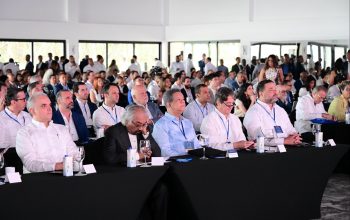news
“Bosch, Aristide, and the United States”, an article by Dr. Leonel Fernández
May 11, 2015
Surprisingly—and without anyone apparently having noticed before—striking similarities exist between the political careers of Juan Bosch and Jean-Bertrand Aristide. Bosch, for example, was chosen in December 1962 as the first democratically elected Dominican president, with more than 60 percent of the vote, following the 30-year dictatorship of Rafael Leónidas Trujillo.
He took office in February of the following year, and just six months later, in
September 1963, was toppled in a military coup.
The same thing happened with Aristide. He was elected in 1990, with more than 60 percent of the votes, as the first democratic president of Haiti after the near 30-year dictatorship of the Duvaliers. He began his mandate in February of 1991, and seven months later, also in September, he was deposed by a military coup.
The reasons for both coups are also more or less analogous. Bosch, a popular national
leader with a radical social reform agenda, met resistance from a conservative oligarchy anxious to protect its power.
Aristide, a former Salesian priest and proponent of liberation theology who manifested the hope of profound democratic changes to the economic and social development model, was viewed with great mistrust and suspicion by traditional military and economic elites.
But the similarities stop there. What happened thereafter is pinned on the
reaction of the United States and the international community to the two coups d’état in the Dominican Republic and Haiti, and the eventuality of the return of the two to power.
Between the two events passed a period of 28 years, that is, an entire generation or political cycle; and during that phase a transformation took place in the global political system, a transformation that holds the key to understanding the divergent reactions of the international
community to the two events on opposite sides of the island of Hispaniola.
The Cold War
With respect to the toppling of the government of Juan Bosch, the initial reaction of John F. Kennedy’s government was to lament the coup, break diplomatic relations with the de facto government, and suspend all military and economic aid.
But two months after Bosch’s deposal, in November 1963, president Kennedy
himself was gunned down in the streets of Dallas, Texas. His successor, Lyndon B. Johnson, who had attended president Bosch’s inauguration, had within a month of occupying the White House recognized the Dominican Triumvirate and reestablished diplomatic relations.
Some might reason that president Johnson adopted this change of attitude on the part of the U.S. government on the basis that the coup was by then a fait accompli about which nothing could any longer
be done.
Nonetheless, it’s true that the despite the fact that president Bosch had maintained an irreproachable democratic conduct throughout his political career, certain political circles in the United States harbored the suspicion, fed by some conservative segments of national life, that he had Communist leanings or was at least very flexible with respect to the “Reds.”
With regard to this subject, declassified documents
from the U.S. government would later reveal that in the U.S. embassy in the Dominican Republic there were ambiguous positions.
On one side was ambassador John Bartlow Martin, whose reports display the intention of trying to preserve Washington’s support for the Bosch government, despite certain criticisms of his style of governing.
To that end, Martin even traveled to the U.S. capital shortly before the coup to try to win support for his point
of view in various agencies and departments of his country’s government. In the end he even met with president Kennedy, who listened with attention but upon saying their goodbyes noted with subtle humor (but in a veiled warning): “I don’t want you to become the Earl T. Smith of my administration.”
Earl T. Smith was the last U.S. ambassador in Cuba before the triumph of its revolution in 1959, and with that message Kennedy was
expressing to his diplomatic representative that he didn’t want to see the Dominican Republic turned into another Cuba.
Unlike ambassador Martin, the cables and reports from the CIA and members of the Military Assistance Advisory Group (MAAG) were completely unfavorable to the Dominican president, about whom they harbored doubts and held the opinion that in the best of cases he was unpredictable.
The logic of the Cold War, of the fight against
Communism and the danger of the Cuban revolution, predominated in that epoch – and it was precisely that logic that prevailed when, 19 months after the coup, the United States intervened militarily in the Dominican Republic to halt the April Revolution of 1965 and prevent the return to power of the democratically elected government, aiming to avoid a second Cuba or the installation of a Communist regime.
The case of Aristide
In the case of
the military coup against president Jean-Bertrande Aristide on September 29, 1991, the U.S. government not only condemned the coup but also froze the funds of the Haitian government and of the leaders of the military junta, prohibited the export of military and police devices to Haiti, and supported the return of Aristide to power.
For its part the OAS Permanent Council immediately reacted with the release of Resolution 1080, which condemned the coup and called an urgent
Meeting of Consultation of Ministers of Foreign Affairs.
In this meeting, it was decided to recognize the designated representatives of the constitutional government of president Jean-Bertrand Aristide as the sole legitimate representatives of the Haitian government before the organs, agencies, and entities of the Inter-American system.
It further recommended a suspension of diplomatic relations with the military government of general Raoul Cedras, an
end to economic and military aid to Haiti, and a break in trade relations.
This change of attitude resulted from the fact that, as a consequence of the end of the Cold War during the latter part of the 80s and the beginning of the 90s, as well the process of democratic transition carried out in Latin America and the Caribbean from the end of the 70s, Communism was no longer the heresy it used to be.
Hence, the objective at that time became strengthening
and consolidating democratic institutions. As a result, the OAS underwent a renewal, adopting a more active and firmer stance against coups d’état.
In 1990, for example, it created a Union for Democracy, and in June 1991 it endorsed the so-called Santiago Commitment to Democracy and the Renewal of the Inter-American System, which signified a radical change with respect to the notion of the collective defense of democracy.
Those institutional
changes within the Inter-American system were occurring at the precise moment that forces were attempting to reverse the democratic process with coup d’état in Haiti, Peru, Guatemala, and Suriname.
Haiti was the first country where the new institutional mechanisms of non-recognition of governments established by interruption of the constitutional order were put in practice. In the process, of course, there were many difficulties and tensions. In fact, several
conflict resolution agreements were aborted as coup participants resisted abandoning power.
In the end, nonetheless, the UN Security Council, at the request of the United States, authorized a military intervention in the country of Toussaint L’Ouverture.
And thus it was that, on October 15, 1994, after three years in exile, Jean-Bertrand Aristide returned as the legitimate and constitutional president of the Republic of Haiti.
In short, the times and the changes in the international sphere determined the divergent reactions of the United States and the international community in the aftermath of two political events of an identical nature.
Related links:
http://leonelfernandez.com/articulos/bosch-aristide-y-estados-unidos/






